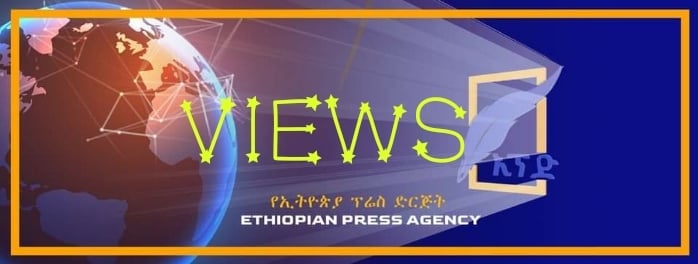
Upon the invitation from President Recep Tayyip Erdogan, Prime Minister Abiy Ahmed (PhD) is on a working visit to Turkey upon the invitation from President Recep Tayyip Erdogan. His visit coincides with the 125th anniversary of the diplomatic relations between Ethiopia and Turkey.
The earliest diplomatic contact between Turkey and Ethiopia dates us back to 1896 with the exchange of delegations during the time of Sultan Abdülhamid II and Emperor Menelik II.
The subsequent years had also seen the expansion of the diplomatic relations between the two sisterly countries. For instance, the first Ottoman-Turkish Consulate was established in the town of Harar in 1912. On top of this, Turkey established its first Embassy in Sub-Saharan Africa in Addis Ababa in 1926. Ethiopia opened its Embassy in Turkey in 1933. But, the Ethiopian Embassy in Ankara was closed in 1984 during the Communist Derg regime and was re-opened in 2006.
Archive obtained from the Turkish Ministry of Foreign Affairs indicates that Ethiopia and Turkey have registered significant milestones in their bilateral fronts. The mutual high-level visits of the countries’ officials being the most important ones, other successes include the inauguration of Turkish Airlines’ direct flights to Addis Ababa as of April 2006; the establishment of the first TIKA (Turkish Cooperation and Coordination Agency) Office in Addis Ababa in 2005 and development aid programs towards Ethiopia.
It is to be recalled that the Turkish president paid an official working visit to Ethiopia between January 21-23 2015. Furthermore, Dr. Mulatu Teshome Wirtu, former President of Ethiopia, who was also the former Ethiopian Ambassador to Ankara paid a state visit to Turkey on 6-10 February 2017 and attended the II Turkey-Africa Economy and Business Forum on 10-11 October 2018.
While the number of Turkish companies investing in Ethiopia in 2003 was only 1 and the number of employed people was 5, yet Turkish business people have become one of the largest private sector employers in Ethiopia by employing more than 20,000 Ethiopians with approximately 200 Turkish companies. Total investment volume surpassed 2 billion Dollar while 13 projects have been completed so far.
According to reports from Turkish Ministry of Foreign Affairs, bilateral trade volume between Turkey and Ethiopia amounted to 398.8 million USD in 2019 (exports were 378.3 million USD and imports were 27.5 million USD), and to 272 million USD in 2020 (exports were 231 million and imports were 41 million USD).
The report also noted that the people-to-people contacts and changing perceptions have led Turkish companies to create more employment to Ethiopians through expanding their investment in the country.
Turkey-Ethiopia 8th Session of the JEC was held in Ankara on 14 January 14, 2021, under the co-chairmanship of Minister of Interior H.E. Süleyman Soylu and Ethiopian Trade and Industry Minister Melaku Alebel.
In terms of support in higher education, Turkish Government provided undergraduate and postgraduate scholarships for Ethiopian students. As of 2020, 632 Ethiopian students have been awarded scholarships at various Turkish universities.
Ethiopia and Turkey share common views on peaceful development in the Horn of Africa and also on the peaceful settlement of the current dispute on GERD between Ethiopia, Sudan and Egypt. As indicated earlier the two countries have one of the longest diplomatic relations in the world and the trade and investment relations between the two countries have continued to grow over the pervious decade.
In a recent telephone conversation between Prime Minister Abiy Ahmed (PhD) and President Recep Tayyip Erdoğan, the latter said that his country will render every possible support for Ethiopia in the nation’s efforts to accelerate its development programs and the promotion of peaceful development in the country.
The leaders of Ethiopia and Turkey met and discussed various issues yesterday. They also briefed the media following the discussion. Turkish President said during the press conference: “Ethiopia’s territorial integrity and peace matters for us and we will do our best to solve the conflict. We are attaching significant importance to the resolution of the conflict.”
Regarding Sudan, he said both Ethiopia and Sudan which are our allies are in tension because of a territorial issue in Alfashga region. He said the discussion included the border issue as well.
“The conflict will be resolved on the basis of dialogue and Turkey would offer any kind of support to the peaceful resolution including but noted limited to being a mediator.”
For his part, Prime Minister Abiy Ahmed (PhD) appreciated the president and his administration. He said the historical relationship and cultural bond of the two countries have stood the test of time. “These have provided firm foundations to our relations.”
The premier went to say that Ethiopia values its friendship and partnership. The ever-growing relations between the two countries will help to not only promote investments but is also expected to promote further people to people relations, the development of tourist industry and the possible transfer of industrial technology and skill transfer between the two countries.
The comprehensive relations between Ethiopia and Turkey are also expected to promote peace in the Horn of Africa and also help to reduce foreign induced tensions in the African region. At this point in time when Ethiopia is being pressurized through multiple sets of conspiracies from within and at international level, Turkey’s good gesture and diplomatic support for Ethiopia will help to further cement stronger relations between the two countries.
It is expected that the two leaders will chart out major directions under which the all-round relations between the two countries will flourish.
Prime Minister Abiy underscored: “Modern day Turkey stands as a model for national pursuing and independent national course of development defined by the interest of their own people.”
Ethiopia is the land of tolerance and respect for differences he said, indicating that this summarizes the essence of Ethiopia’s domestic as well as foreign policy.
Editor’s Note: The views entertained in this article do not necessarily reflect the stance of The Ethiopian Herald
The Ethiopian Herald August 19/2021



